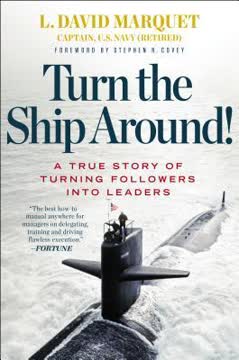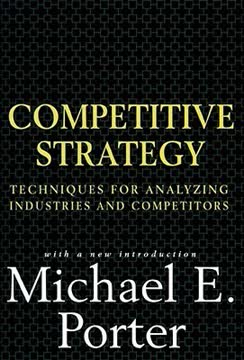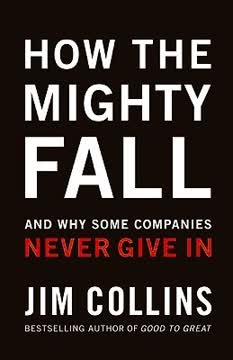Key Takeaways
1. Management is a crucial social function in the knowledge society
Management is the specific and distinguishing organ of any and all organizations.
Management's core role. In the knowledge society, management has become the central organ of all organizations, not just businesses. It is responsible for making human resources productive and converting specialized knowledge into performance. Management's tasks include setting objectives, organizing work, motivating people, and measuring results.
Universal applicability. The principles of management apply across various sectors:
- Business enterprises
- Nonprofit organizations
- Government agencies
- Educational institutions
- Healthcare organizations
Societal impact. Effective management is crucial for:
- Economic growth and productivity
- Innovation and technological progress
- Social development and problem-solving
- Organizational sustainability and adaptability
2. Effectiveness must be learned through systematic practices
Effectiveness is a discipline. And, like every discipline, effectiveness can be learned and must be earned.
Developing effectiveness. Effectiveness is not an innate trait but a set of practices that can be learned and improved over time. These practices include:
- Setting clear goals and priorities
- Focusing on strengths rather than weaknesses
- Managing time efficiently
- Making informed decisions
- Communicating effectively
Continuous improvement. Effectiveness requires ongoing effort and self-reflection:
- Regularly assess your performance against set objectives
- Seek feedback from colleagues and superiors
- Stay updated with industry trends and best practices
- Adapt your methods as circumstances change
3. Focus on contribution rather than effort for maximum impact
The effective executive focuses on contribution. He looks up from his work and outward toward goals. He asks: "What can I contribute that will significantly affect the performance and the results of the institution I serve?"
Contribution-oriented mindset. Shift your focus from tasks and activities to outcomes and results:
- Identify the key areas where your efforts can make the most significant difference
- Align your work with the organization's overall objectives
- Prioritize tasks that deliver the greatest value
Measuring impact. Assess your contribution using meaningful metrics:
- Define clear, measurable goals for your role
- Track progress and adjust strategies as needed
- Seek opportunities to create value beyond your immediate responsibilities
4. Leverage your strengths and manage your time effectively
To be effective, every knowledge worker, and especially every executive, therefore needs to be able to dispose of time in fairly large chunks. To have small dribs and drabs of time at his disposal will not be sufficient even if the total is an impressive number of hours.
Strength-based approach. Identify and capitalize on your unique abilities:
- Conduct a self-assessment to recognize your core strengths
- Delegate tasks that don't align with your strengths
- Seek roles and projects that allow you to utilize your strengths fully
Time management strategies. Optimize your productivity by managing time effectively:
- Block out large chunks of uninterrupted time for important tasks
- Minimize distractions and time-wasters
- Use tools like time-blocking and the Pomodoro Technique
- Regularly analyze and adjust your time allocation
5. Make effective decisions by following a structured process
Effective decisions result from a systematic process, with clearly defined elements and in a distinct sequence of steps.
Decision-making framework. Follow a systematic approach to decision-making:
- Define the problem or opportunity clearly
- Specify the boundary conditions (criteria the solution must satisfy)
- Develop alternative solutions
- Analyze the risks and potential consequences of each option
- Make the decision
- Implement and monitor the results
Key considerations. Enhance your decision-making effectiveness by:
- Gathering relevant information from diverse sources
- Challenging assumptions and biases
- Considering both short-term and long-term implications
- Involving stakeholders in the decision-making process when appropriate
6. Develop entrepreneurial strategies for innovation and growth
Innovation is the specific tool of entrepreneurs, the means by which they exploit change as an opportunity for a different business or a different service.
Entrepreneurial mindset. Cultivate an innovative approach to business:
- Stay alert to changes in the market, technology, and society
- Identify unmet needs and emerging opportunities
- Experiment with new ideas and business models
- Be willing to take calculated risks
Innovation strategies. Implement systematic approaches to foster innovation:
- Allocate resources for research and development
- Encourage creativity and idea-sharing among employees
- Develop partnerships and collaborations with external organizations
- Create a culture that embraces change and continuous improvement
7. Adapt to the changing nature of work in the knowledge economy
In a knowledge society, individuals can expect to outlive organizations. This creates a totally new challenge: What to do with the second half of one's life?
Career longevity. Prepare for a longer and more diverse working life:
- Develop a portfolio of skills and experiences
- Stay adaptable and open to new opportunities
- Consider multiple careers or parallel careers
- Invest in continuous learning and self-improvement
Changing work environment. Understand and adapt to new workplace dynamics:
- Embrace remote and flexible work arrangements
- Develop skills in digital collaboration and communication
- Be prepared for project-based and gig economy opportunities
- Focus on building a personal brand and professional network
8. Nonprofits are pioneering effective management practices
The nonprofits are America's management leaders. In two areas, strategy and the effectiveness of the board, they are practicing what most American businesses only preach.
Learning from nonprofits. Businesses can adopt effective practices from the nonprofit sector:
- Develop clear mission statements and strategic objectives
- Implement effective board governance structures
- Focus on measuring and communicating impact
- Foster a culture of volunteer engagement and commitment
Transferable strategies. Key nonprofit management approaches applicable to businesses:
- Mission-driven decision-making
- Stakeholder engagement and collaboration
- Resource optimization in resource-constrained environments
- Balancing social impact with financial sustainability
9. Leadership is about performance, not personality
Leadership is not magnetic personality, that can just as well be a glib tongue. It is not "making friends and influencing people," that is flattery. Leadership is lifting a person's vision to higher sights, the raising of a person's performance to a higher standard, the building of a personality beyond its normal limitations.
Performance-focused leadership. Effective leaders prioritize results over charisma:
- Set clear goals and expectations for the team
- Lead by example in terms of work ethic and standards
- Provide constructive feedback and support for improvement
- Celebrate and reward high performance
Key leadership qualities. Develop essential traits for effective leadership:
- Vision: Ability to set and communicate a compelling direction
- Integrity: Consistency between words and actions
- Empowerment: Enabling others to take initiative and grow
- Adaptability: Navigating change and uncertainty effectively
10. The rise of knowledge workers is transforming society
The most valuable assets of a 20th-century company were its production equipment. The most valuable asset of a 21st-century institution, whether business or non-business, will be its knowledge workers and their productivity.
Knowledge economy shift. Recognize the fundamental changes in the workforce:
- Transition from manual labor to knowledge-based work
- Increasing importance of education and specialized skills
- Growing emphasis on innovation and intellectual property
- Rise of service-based and information-driven industries
Implications for organizations. Adapt to the needs of knowledge workers:
- Create environments that foster creativity and collaboration
- Provide opportunities for continuous learning and development
- Offer flexible work arrangements and autonomy
- Develop new metrics for measuring knowledge worker productivity
Last updated:
FAQ
What's The Essential Drucker about?
- Comprehensive Management Guide: The Essential Drucker by Peter F. Drucker is a compilation of his writings on management, offering a thorough introduction to management principles and practices.
- Social Function of Management: Drucker emphasizes management as a social function, crucial for enabling people to work together effectively in both for-profit and non-profit organizations.
- Integration of Individual and Society: The book explores how individual effectiveness aligns with organizational and societal goals, presenting management as a discipline that adapts to societal changes.
Why should I read The Essential Drucker?
- Foundational Knowledge: It provides timeless management principles that are relevant in today's business environment, beneficial for both new and experienced managers.
- Practical Insights: Drucker offers actionable advice and frameworks, such as management by objectives, to enhance personal and organizational effectiveness.
- Influential Author: As the father of modern management, Drucker's ideas have significantly shaped the field, making this book a valuable resource for understanding his influential thoughts.
What are the key takeaways of The Essential Drucker?
- Management as a Liberal Art: Drucker views management as integrating knowledge from various disciplines to achieve effective results, emphasizing human behavior and societal impacts.
- Focus on Objectives: The concept of management by objectives is central, aligning individual efforts with organizational goals to foster purpose and accountability.
- Importance of Innovation: Continuous innovation is essential for organizations to remain competitive and relevant in a changing environment.
What are the best quotes from The Essential Drucker and what do they mean?
- "What gets measured gets managed.": This highlights the importance of measurement in assessing performance and driving improvement.
- "The best way to predict the future is to create it.": Drucker emphasizes proactive management in shaping organizational futures through innovation.
- "Management is doing things right; leadership is doing the right things.": This differentiates management's focus on efficiency from leadership's focus on vision and direction.
How does Peter Drucker define the purpose of a business in The Essential Drucker?
- Creating a Customer: The primary purpose is to understand and fulfill customer needs, driving profitability and success.
- Economic Performance: Businesses must focus on economic performance as a condition for sustaining their contributions to society.
- Value Creation: Drucker shifts the focus from profit-making to creating value for customers, leading to long-term success.
What is the concept of management by objectives in The Essential Drucker?
- Collaborative Goal Setting: Management by objectives involves managers and employees setting clear, measurable goals together.
- Self-Control and Accountability: It promotes self-control, allowing performance measurement against objectives, fostering accountability.
- Alignment with Goals: This process aligns individual objectives with organizational goals, creating a unified direction for effectiveness.
What is the concept of "entrepreneurial judo" in The Essential Drucker?
- Strategic Advantage: Entrepreneurial judo involves newcomers leveraging the weaknesses of established companies to gain market share.
- Exploiting Bad Habits: Drucker outlines five bad habits of incumbents that newcomers can exploit, such as market creaming and premium pricing.
- Securing a Beachhead: The strategy focuses on securing a foothold in overlooked markets, emphasizing niche markets and targeted offerings.
How does The Essential Drucker address the role of knowledge workers?
- Self-Management: Knowledge workers must manage their time, learning, and contributions actively for effectiveness.
- Continuous Learning: Lifelong learning is crucial for updating skills and remaining relevant in evolving industries.
- Collaboration and Teamwork: Effective communication and teamwork are essential for integrating diverse expertise and achieving common goals.
How does Peter Drucker suggest organizations should approach decision-making in The Essential Drucker?
- Principle-Based Decisions: Effective decision-making involves clear principles and understanding the situation's realities.
- Feedback Mechanism: Incorporating feedback allows for assessing decision effectiveness and making necessary adjustments.
- Avoiding Consensus: Encouraging diverse opinions can lead to robust discussions and better outcomes, fostering critical thinking.
What are the dimensions of management discussed in The Essential Drucker?
- Purpose and Mission: Establishing a clear purpose and mission guides all managerial actions and decisions.
- Productivity and Effectiveness: Management must ensure employees have the resources and support for efficient task performance.
- Social Responsibility: Managing social impacts and responsibilities is crucial for maintaining organizational legitimacy and support.
What is the significance of innovation in The Essential Drucker?
- Core to Management: Innovation is a core responsibility, essential for adapting to changing market conditions and customer needs.
- Entrepreneurial Mindset: Encouraging an entrepreneurial mindset fosters creativity and adaptability within organizations.
- Sustaining Competitive Advantage: Continuous innovation is necessary for maintaining a competitive edge and avoiding obsolescence.
How does The Essential Drucker address the relationship between management and society?
- Social Function of Management: Management organizes human efforts to achieve common goals, addressing societal needs and challenges.
- Impact on Communities: Organizations must be aware of their social impacts and responsibilities, working to mitigate negative consequences.
- Citizenship through Organizations: Businesses play a crucial role in fostering citizenship and social responsibility, contributing positively to societal well-being.
Review Summary
The Essential Drucker compiles key insights from Drucker's 60-year career in management. Readers praise its timeless wisdom on leadership, innovation, and organizational effectiveness, though some find parts dated. The book covers management principles, individual development, and societal impact. Many appreciate Drucker's foresight and practical advice, while others note repetition from his previous works. Despite mixed opinions on relevance, it's considered a valuable resource for understanding management philosophy and business history.
Similar Books









Download PDF
Download EPUB
.epub digital book format is ideal for reading ebooks on phones, tablets, and e-readers.













